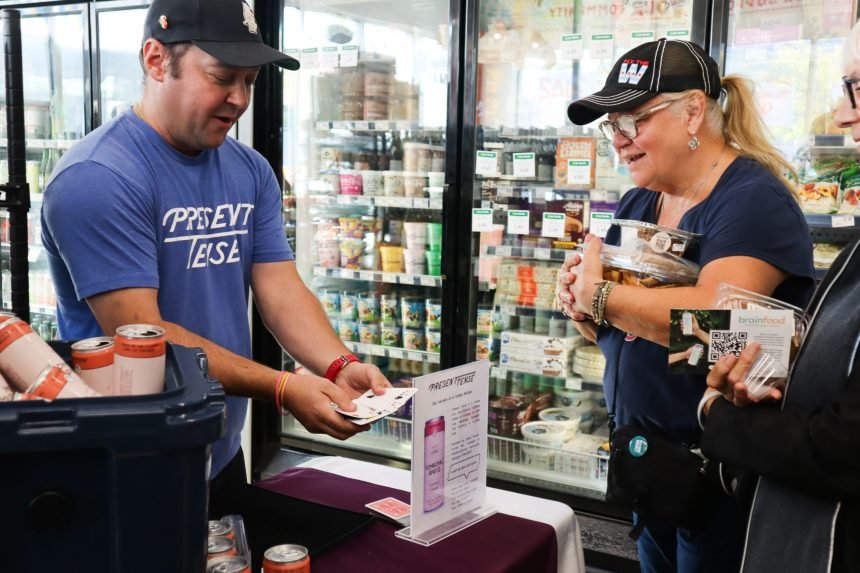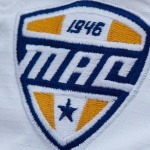One of two co-op grocery stores in Chicago, Rogers Park shop Wild Onion Market prides itself on being community owned and democratically run, according to their website. The co-op said it prioritizes the values and opinions of those who invest in their store and is owned by over 2,500 members of the community.
Located at 7007 N. Clark, Wild Onion Market has been an ongoing project since 2014, but officially opened its doors in June 2024. Now, the market is home to a tight-knit group with a drive to support locally.
“The cooperative model means that community members have bought shares in the store,” Mary Meyer, the first owner of Wild Onion, said. “That means they have an ownership stake in the co-op, and they also elect a board of directors.”
The goal of a cooperative grocery store is to support its community by providing small, local vendors with an outlet to the larger market, support democratic principles by giving the local community a voice and increasing access to quality food, according to fci.coop.
“Chicago is a place where a lot of new food companies get started, and a lot of them are really small,” Matt Wechsler, the general manager, said. “When they get started and are working to create products that reach national markets, they need to be championed by the small stores that work to elevate the local vendors in front of the customer base.”
The store held a Local Fest Sept. 29 to highlight one of the central aspects of a co-op — the local vendors.
The fest featured booths from twelve local Chicago vendors. From healthy Honey-Bear Bites to chickpea granola, a variety of delicious snacks and foods were featured. Vendors sat at booths making friendly conversation and sharing backstories on the founding of their businesses.
Reflecting the values of a co-op, Wild Onion strengthens not only the nearby community, but the founding of smaller, family-owned and new businesses within the city.
Owner participation is one of the market’s most important values, according to Wechsler. The Wild Onion has a board of nine community-elected directors who represent owners.
“Let’s say you’re the type of person who really wants to see certain health foods in a store,” Wechsler said. “You can’t necessarily go to a big-box store and ask for those products, but you can go to your co-op and ask them to carry those products.”
Having a say in products that are sold in a store is rare. It is also a unique opportunity to voice support for small business or companies that need an extra boost in the market. Stephen Johnson, a member of the elected board, and claims that it is also a way to reflect personal beliefs.
“If you proclaim that something’s important, and yet that proclamation never affects how you behave, it’s an empty proclamation,” Johnson said.
Johnson relates this claim to environmental sustainability, an area that the co-op model advocates for.
“It’s also a way to help nurture the land, because many of the farmers that we purchase product from are committed to farming in a way that is sustainable,” Johnson said. “We need to do a better job as a country and as a species on thinking about the long-term impact of our presence in the world.”

Participating in the Wild Onion community, whether it’s becoming an owner or simply shopping at the co-op, provides an accessible way to make a difference, according to its customers and owners. Especially for busy college students, Wechsler said shopping at a co-op can be an uncomplicated way to feel empowered within their community.
“If you’re a Loyola student, you can find a lot of really good health foods here,” Wechsler said. “We welcome all students to come to our store and experience it for themselves.”
The co-op’s next event, a Fall Festival, will be held Nov. 9 from 2 to 5 p.m. More information can be found on the Wild Onion co-op website at wildonionmarket.com.











